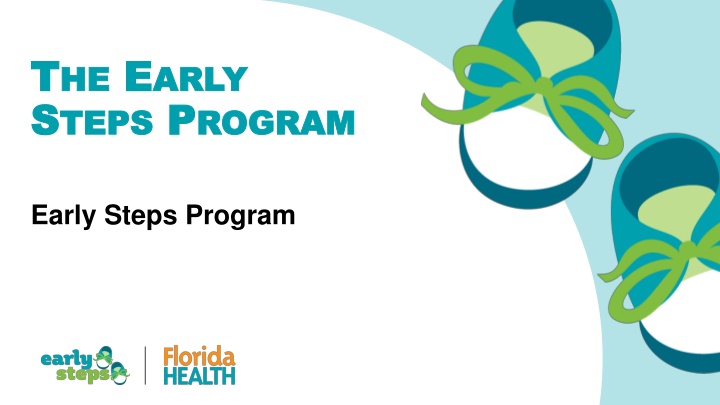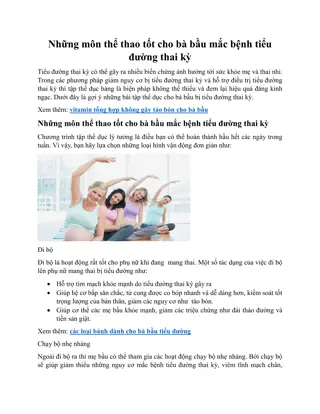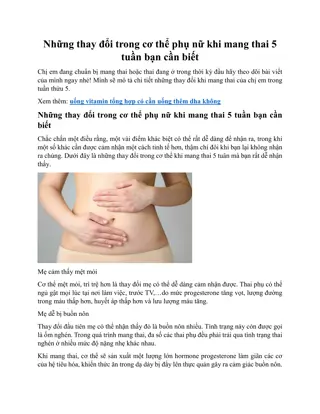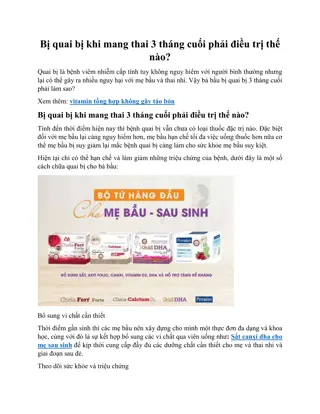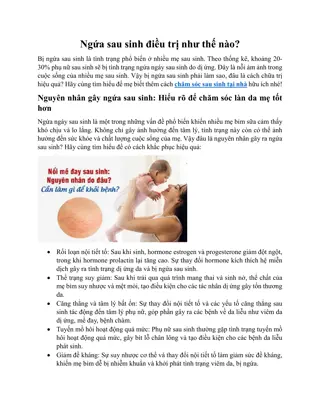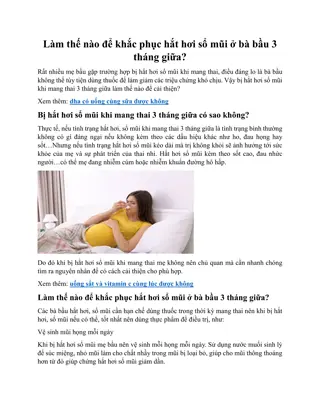The Steps to an Early Steps Program
Enhance your child's early development with the comprehensive Early Steps Program. Designed to foster growth and learning in a structured environment, this program offers a nurturing and supportive approach to early childhood education. Our curriculum focuses on key areas such as language development, motor skills, and social interaction, ensuring that your child receives a well-rounded foundation for future success. Join us on this exciting journey towards unlocking your child's full potential.
Download Presentation

Please find below an Image/Link to download the presentation.
The content on the website is provided AS IS for your information and personal use only. It may not be sold, licensed, or shared on other websites without obtaining consent from the author.If you encounter any issues during the download, it is possible that the publisher has removed the file from their server.
You are allowed to download the files provided on this website for personal or commercial use, subject to the condition that they are used lawfully. All files are the property of their respective owners.
The content on the website is provided AS IS for your information and personal use only. It may not be sold, licensed, or shared on other websites without obtaining consent from the author.
E N D
Presentation Transcript
T THE S STEPS HE E EARLY TEPS P PROGRAM ARLY ROGRAM v Early Steps Program
REGULATORY AUTHORITY Federal Register, 34 CFR Part 303 o Under the federal Individuals with Disabilities Education Act (IDEA), Part C, the Florida Department of Health is established as the lead agency. o Florida Interagency Coordinating Council for Infants and Toddlers (FICCIT). Chapter 391.301 .308, Florida Statutes. 2
PROGRAM GOALS Build family and caregiver confidence and competence. Provide services that support children where they live, learn, and play. Expand upon the individual strengths of the family to address developmental concerns. 3
CORE PRINCIPLES Each child is unique. Every family s needs are different. Early intervention works best when the family is supported in meeting their child s needs. The parent, family, or caregiver is the child s best teacher. The family s concerns, priorities, and culture are valued. Children learn best in settings that include all children. 4
STATE STRUCTURE Contracts with 15 local programs Provide or oversee direct services to infants, toddlers, and their families. Variety of organizational structures: o Hospitals o Universities o Non-profit organizations 5
L LOCAL OCAL E EARLY ARLY S STEPS TEPS R REGIONS EGIONS 6
ELIGIBILITY Birth to three years old. Developmental delay. Established conditions that commonly cause developmental delays. At-risk conditions. No income requirement. 7
REFERRAL SOURCES Pediatricians and Specialists Childcare Providers Families Hospitals Department of Children and Families Child Protection Teams Early Learning Coalition Community Agencies and Providers Others 8
INITIAL CONTACTWITH FAMILY Contact with the family is made within five days. Additional information is gathered and shared during the first contact, such as: o A family assessment is completed to determine family concerns, priorities, and resources. o The child's diagnosis is documented, if applicable. o A developmental screening, evaluation and/or assessment is completed. 9
INDIVIDUALIZED FAMILY SUPPORT PLAN (IFSP) The service coordinator must convene the IFSP team members in a face-to-face meeting to develop the initial IFSP for each eligible child and family. The IFSP process is family-centered and documents the following: o Family s concerns, priorities, and resources o Evaluation and/or assessment results o Expected outcomes o Strategies to achieve outcomes, including supports, services, and community resources 10
EARLY INTERVENTION SERVICES Assistive technology Early intervention sessions Counseling Therapies Vision and hearing services Other required services 11
EARLY STEPS PROVIDERS Early intervention services must be provided by qualified personnel: o Speech Language Pathologists o Audiologists o Occupational Therapists o Physical Therapists o Infant Toddler Development Specialists o Psychologists o Social Workers o Nurses o Registered Dietitians o Nutrition Counselors o Family Therapists 12
SERVICE DELIVERY Team-based primary service provider approach. Aims to enhance family and caregiver competence, confidence, and capacity to meet their child s developmental needs and desired outcomes. Evidence-based practices are utilized. Services can be delivered in a variety of ways: o Direct service provision, which includes coaching o Co-visits o Consultations 13
Jessica O. Meyer, MSW 850-841-8647 Jessica.Meyer@FLHealth.gov Dusty Stern, RN, BSN 850-841-8652 Dusty.Stern@FLHealth.gov Early Steps Bureau of Early Steps and Newborn Screening Division of Children s Medical Services Florida Department of Health 14
